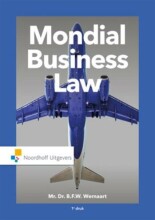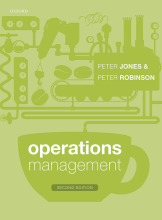Banking and foreign exchange
19 important questions on Banking and foreign exchange
Name the categories money can have + explanation
Privately;
- ONLY making payments between private parties
- Agreement in advance
- Currency basket of official currencies
- stock of rare metal
- Other commodity
Officially;
- Governmental agency(treasure dpt.)
- National financial institution (National central bank)
What is nationalism (nominal value)
Meaning there is an obligation to pay and will not change
Name the types of money transactions + consequences
- Domestic transactions —> in local currency
- International transactions —> contracting parties to determine
- Money of account (MoA)= expresses the amount of obligation that is owed.
- Money of payment (MoP)= the money that the buyer must use to pay for the items purchased.
- Place of payment (PoP) = place of performance(contract) which is usually in local currency.
- Consequences of choosing the (MoA), (MoP) & (PoP) —> jurisdiction of the court is determined by:
- Money of account/payment
- place of payment
- Higher grades + faster learning
- Never study anything twice
- 100% sure, 100% understanding
Explain how monetary value is maintained
- Maintenance of monetary value clause in sales contract
- National currency (hard currency) which traditionally maintains
- Includes use of currency basket in sales contract
What is a currency basket
Explain the national monetary systems
- National government: Sets national fiscal policy and carries on the financial functions of the government
- Central bank: issues bank notes + coins which regulated the quantity of money in circulation + maintains and invests currency
- Commercial banks: Accept + manages deposits —> making loans and offers trust services
EU —> eu central bank only handles euro states
Define bank deposits +Explain the rights + obligations of Banks vs. Depositors
Rights of bank: They are free to use this money as they see fit
Obligation of bank: Need to pay interest on the monies they hold deposit
Right of depositor: They only have a claim against the bank as a general creditor.
muslim law (shari'a) states they can not receive any interest but are a joint venture of the investments
Explain the perspectives of a parent bank for foreign branch
- Separate business unit
- Own P&L statement
- Own foreign tax liabilities
- Own Separate account
Explain the perspective of a home state law for branch banking
Explain the branch banking of international banks+ why foreign banks can do certain things or not
- International banks operate trough branches not subsidiaries
- Host countries therefore have limitations on the operations of foreign banks
- Foreign banks cannot turn to the host country's central bank as a lender of last resort
- They are not obliged to maintain reserves to cover potential losses
- They are liable for assets of the branch
Explain parent bank's liabilities
- Jurisdiction(case law) funds deposed in foreign branch
- The us court of appeal —> parent company is liable for obligations incurred by its branch
Name + explain the 2 types of currencies regarding the foreign exchange market
- Hard currencies = the currencies of major free market nations
- Soft currencies = currencies of developing countries and not freely exchangeable of the foreign exchange market (FEM)
What is foreign exchange and where is it done
It is done on the Foreign exchange market (FEM)
Which is an informal network of
- banks,
- foreign exchange brokers and
- dealers
What is a spot contract
What is a future contract
the delivery + payment to be made at a specified date in the future
What is a forward contract
What is an option contract
Name the 5 types of foreign exchange contracts
- Arbitrage
- Spot contract
- Future contract
- Forward contract
- Option contract
What is a correspondent bank
The question on the page originate from the summary of the following study material:
- A unique study and practice tool
- Never study anything twice again
- Get the grades you hope for
- 100% sure, 100% understanding





























